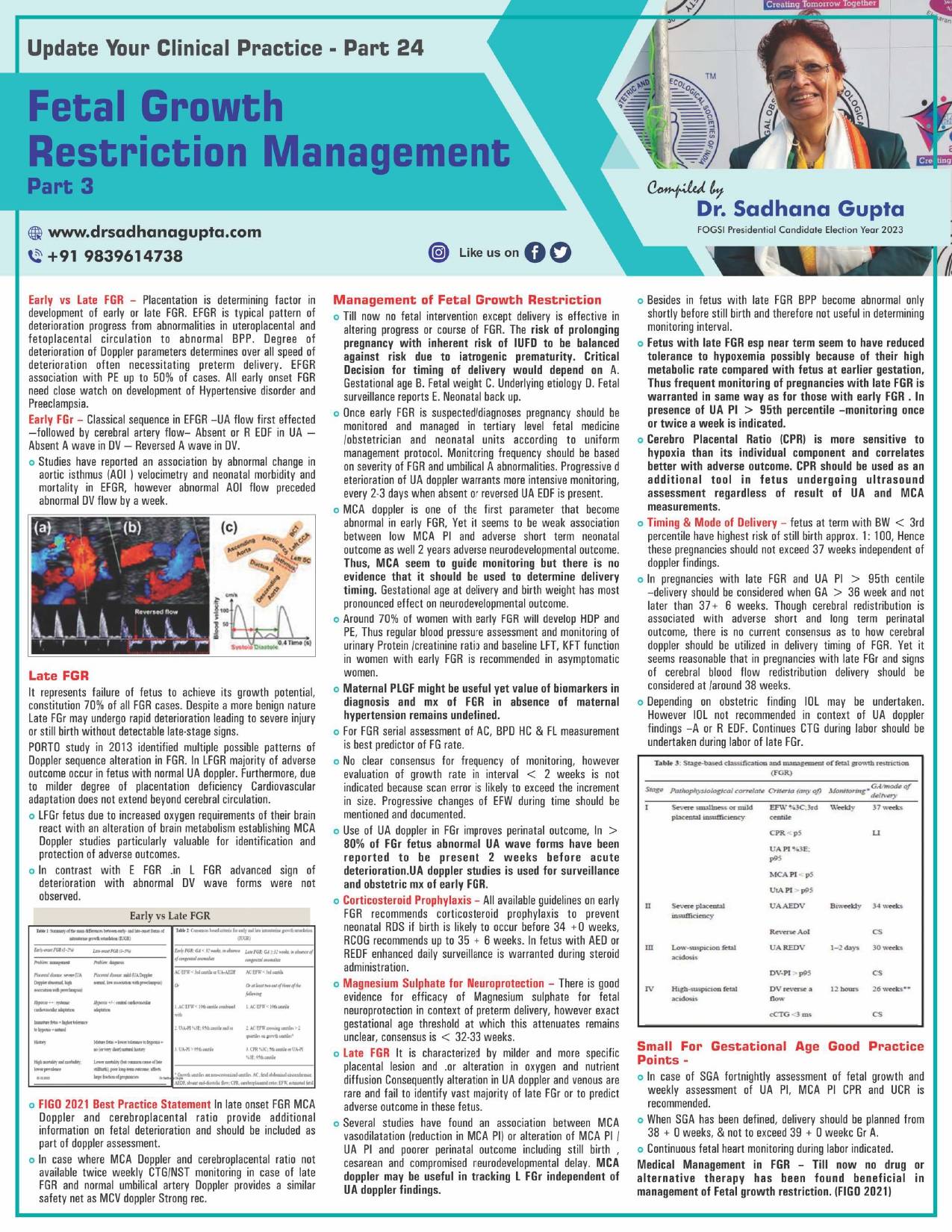Table of Contents
I. Introduction
Welcome to the third and final part of our blog series on fetal growth restriction (FGR) management. In the previous parts, we discussed the causes, diagnosis, and potential complications of FGR. Now, it’s time to focus on strategies for optimal care and the management of this condition. With early detection and appropriate interventions, healthcare professionals can improve outcomes for both the mother and the baby. In this article, we will explore various approaches to managing FGR and ensuring the best possible outcome.
Section 1: Multidisciplinary Approach:
Managing FGR requires a multidisciplinary team consisting of obstetricians, perinatologists, neonatologists, and other healthcare professionals. Collaborative decision-making and regular communication between team members are crucial for effective management. This approach allows for a comprehensive evaluation of the condition and ensures that the best course of action is taken.
Section 2: Monitoring and Surveillance:
Regular monitoring of fetal growth is essential in managing FGR. Ultrasound examinations, Doppler flow studies, and regular fetal heart rate monitoring help assess the baby’s well-being and determine the severity of growth restriction. These tests enable healthcare providers to make informed decisions about timing and mode of delivery, and to closely monitor fetal development throughout the pregnancy.
Section 3: Nutritional Support:
Proper nutrition plays a vital role in managing FGR. Women with FGR may be advised to increase their calorie intake and consume a well-balanced diet rich in nutrients. In some cases, nutritional supplements may be recommended to ensure the baby receives adequate nourishment. It is important to work with a registered dietitian or nutritionist to develop a personalized plan that meets the specific needs of the mother and the growing fetus.
Section 4: Doppler Velocimetry:
Doppler velocimetry is a non-invasive technique that measures blood flow in the umbilical artery, middle cerebral artery, and other relevant vessels. This assessment helps identify compromised blood flow patterns, which can be indicative of fetal distress. Doppler studies are typically performed at regular intervals to monitor the baby’s condition and guide management decisions.
Section 5: Fetal Movement Monitoring:
Monitoring fetal movements is another important aspect of FGR management. Reduced fetal movements or an absence of movements can be an indication of compromised fetal well-being. Expectant mothers are often advised to keep track of their baby’s movements and report any significant changes to their healthcare provider. This information assists in determining the appropriate course of action.
Section 6:Medications and Interventions:
In certain cases of severe FGR, healthcare providers may consider medication interventions to improve fetal growth and well-being. Medications like low-dose aspirin or sildenafil citrate (Viagra) have been used in some instances to enhance blood flow to the placenta and improve fetal outcomes. However, the use of medications in FGR management should always be determined on a case-by-case basis, and the potential risks and benefits carefully evaluated.
Section 7: Delivery Planning:
The timing and mode of delivery are critical decisions in managing FGR. In some cases, early delivery may be necessary to mitigate risks associated with the condition. The healthcare team will consider factors such as gestational age, fetal well-being, and placental function when deciding the optimal time for delivery. Vaginal delivery is generally preferred when possible, but a cesarean section may be recommended if there are concerns about fetal distress or complications during labor.
Conclusion:
Managing fetal growth restriction requires a comprehensive and multidisciplinary approach. Regular monitoring, nutritional support, Doppler studies, fetal movement monitoring, and appropriate interventions are all essential components of optimal care. By implementing these strategies and closely collaborating with healthcare professionals, expectant mothers with FGR can increase the chances of a healthy pregnancy and delivery.

